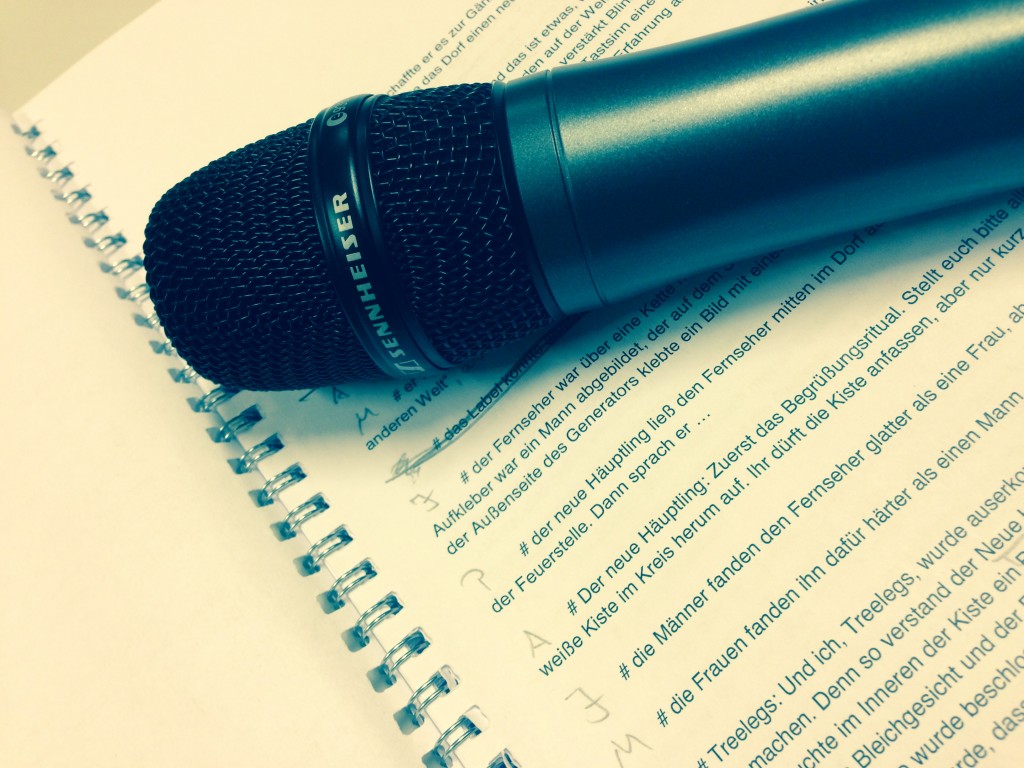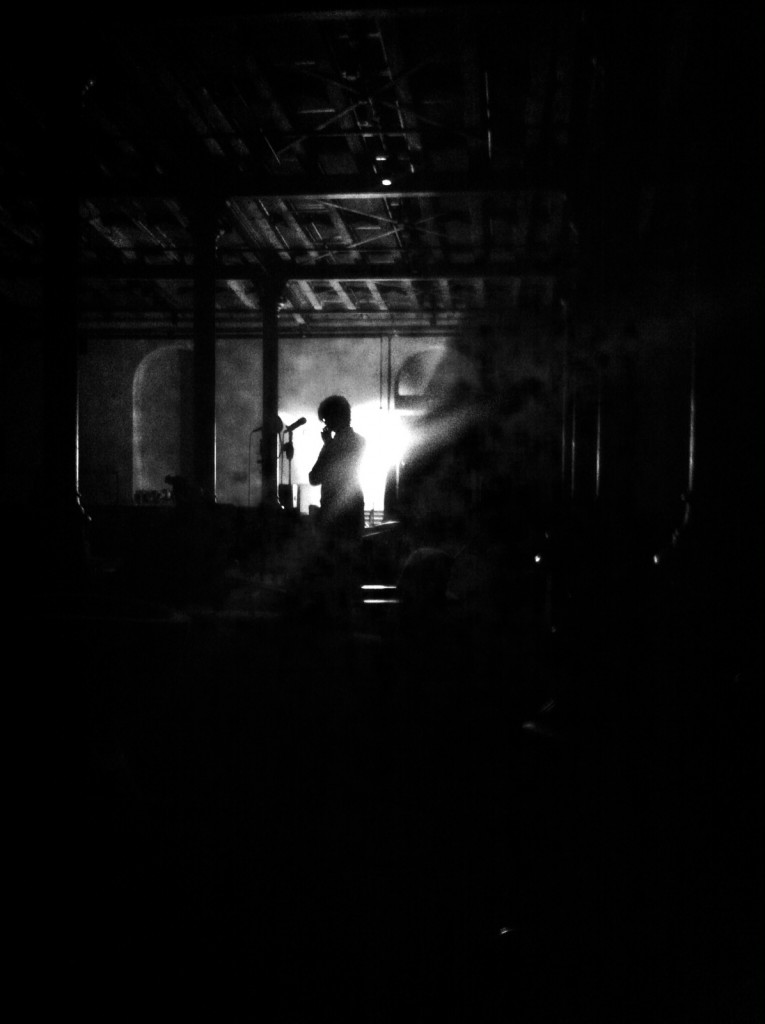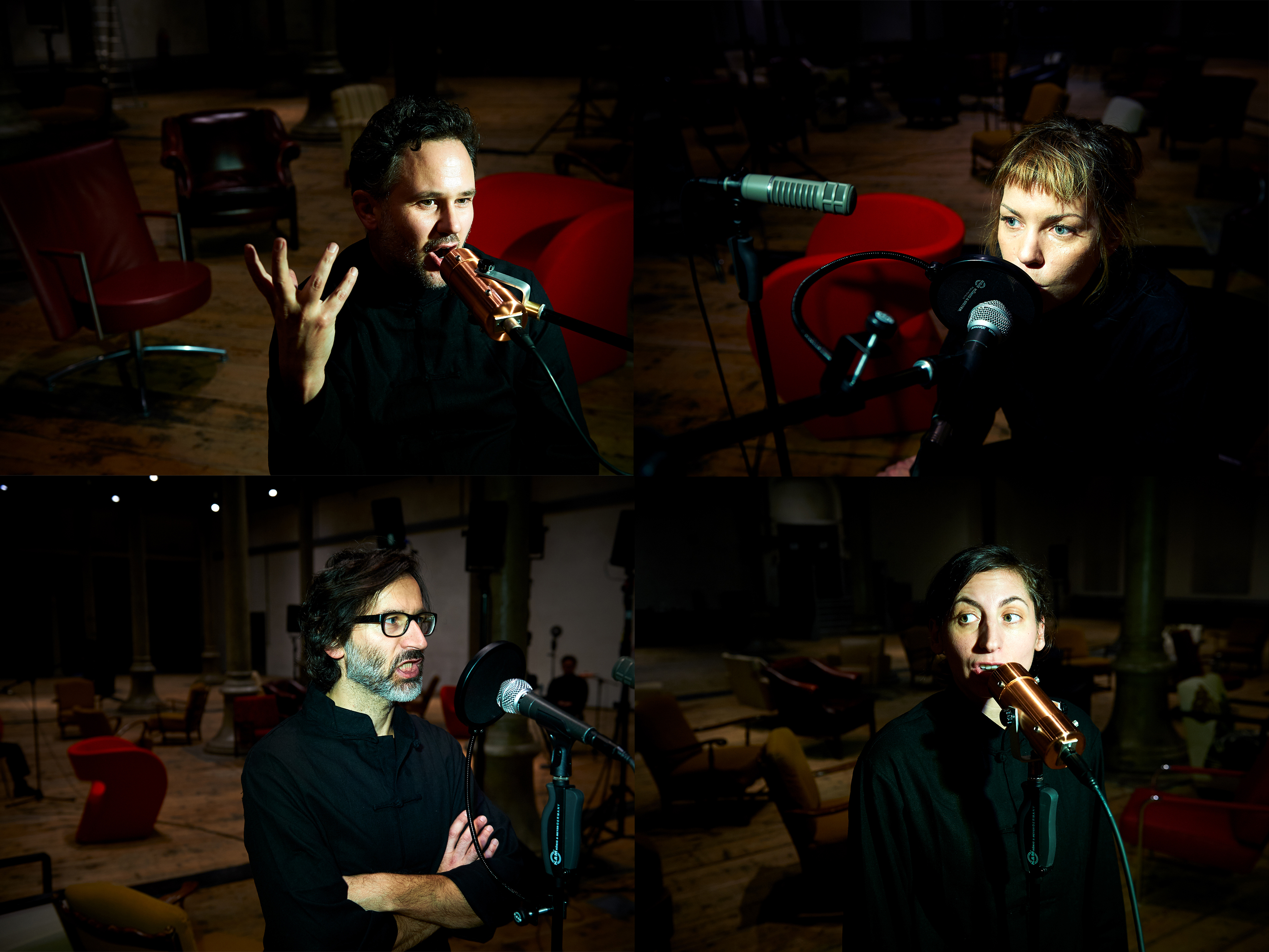Live audio play by toxic dreams
I was performing in a live audio play by toxic dreams, set in pitch darkness at Semper Depot in Vienna, from November 12th to 16th, 2014. Neither the performers nor the audience could see a thing. And here is another live recording of the show (November 16th by Kunstradio Wien).

And this is what director Yosi Wanunu says about the concept:
“The title theatre is evil, Radio is good is a ‘play’ on a title Richard Foreman gave to one of his plays. The original title was Film is Evil: Radio is Good. Foreman was concerned with the effect of visual culture on our intellectual and spiritual life.

Film is evil. As the Bible says: Thou shalt not worship graven images. Of course, one cannot deny film and other visual aspects of experience, but our culture has become tremendously overbalanced toward the visual. The assault of images is so great, the bombardment so continuous, we’re unable to weave them successfully into the warp and woof of daily experience.

In that sense theatre is also evil. Like film, it is rather a more visual, than aural, experience. The stage pulls the audience into watching instead of listening.
The greatest efforts in Theatre is evil, Radio is good will go into making the listening experience as powerful as the watching experience. Even in a normal, narrative theatre, it’s difficult to be aware of the text as language without losing yourself in other elements of the production. The dialogue usually serves to make you see past the spoken language so that you watch the story it is telling-in a “prose like” way, the language disappears in favour of the story it is conveying. In Theatre is evil, Radio is good we would like to stage a text that would give the spectator/listener the sensory experience of listening, word by word, to what is being said. it should be an aural, rather than a visual, experience. The spectator should listen to what is happening in the language.”

Text und Regie: Yosi Wanunu
Ins Deutsche übertragen von Jacqueline Csuss
PerformerInnen: Anna Mendelssohn, Markus Zett, Jaschka Lämmert, Peter Stamer
Sounddesign: Michael Strohmann
Verwendung von ambient sounds von klankbeeld, Felix Blume, Peter Kutin
Tontechnik: Florian Bogner, Peter Böhm
Produktion: Kornelia Kilga
